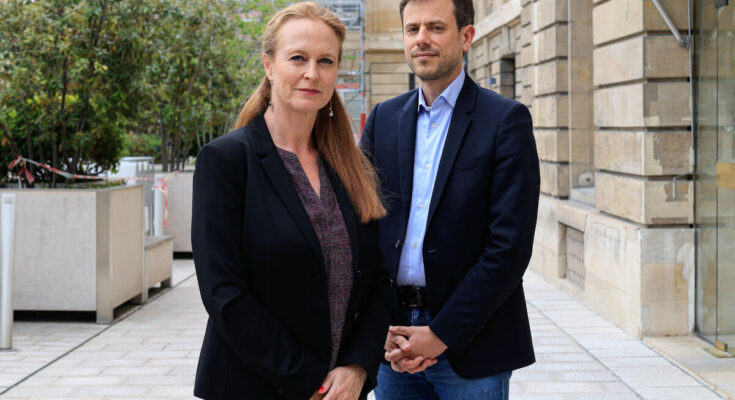This Thursday we celebrate International Children’s Rights Day. This is the date chosen by deputies Violette Spillebout (Renaissance) and Paul Vannier (La France insoumise, LFI) to formalize the submission of the draft law against violence in schools, in December. The duo made the announcement in the morning on franceinfo.
These two deputies have been working for several months on this sensitive issue. They were co-reporters of the commission of inquiry that emerged after the outbreak of the Bétharram case. A major scandal of sexual abuse and physical violence, occurred for decades at the Catholic institution in Béarn, and its shock led to a chain of revelations at other schools.
In their report, adopted in June, Violette Spillebout and Paul Vannier pointed to the responsibility of “failed States” without ignoring the responsibility of François Bayrou, the then Prime Minister, who was criticized for his “failure to act”.
About 30 proposals were taken?
In total, the 330-page document lists 50 proposals to combat violence in schools. “About thirty” of them would be included in the bill, Paul Vannier said.
“Three key areas” emerged: “recognizing and supporting victims”, “better preventing violence in schools” and “strengthening controls to protect students”. “Turning the words of victims into concrete actions is our commitment,” said Violette Spillebout.
This, according to Northern lawmakers and elected representatives of the Ile-de-France region, requires more in-depth background checks on inspectors. “What we want in our proposed law is that every three years, National Education staff in both the public and private sectors (…) can have their good reputation verified” and this is done in a “systematic” way, Violette Spillebout develops.
Since their report was adopted, the two have continued their work on child protection issues. Paul Vannier points out in this regard that the commission of inquiry enabled 92 reports to be made to the court. 55 related departments. “This number is increasing every week, because we do not stop (…) receiving reports and testimonies,” the rebel assured.
So far, reports Violette Spillebout, the whistleblowers have only received “about ten responses to specified and unspecified complaints” from various prosecutors’ offices. They told this to Gérald Darmanin, Minister of Justice. The Minister of Justice, he explained, had promised improvements in this aspect.
A monitoring committee was formed
While waiting for the legislation to be debated, they hope that by early January, a monitoring committee has been created “to translate all our recommendations into action,” underscored Paul Vannier. It will bring together “victim collectives, whistleblowers, researchers, trade unions, and government and private sector umbrella federations”.
Four months after the adoption of the school violence inquiry commission report, we continue efforts to translate all of our recommendations into action.
We announced the creation of an unprecedented monitoring committee, bringing together… pic.twitter.com/xJy2lC7lrB
— Paul Vannier (@PaulVannierFI) November 20, 2025
Violette Spillebout was pleased that her transpartisan work with fellow rebels was able to spark a “start”, praising the “courage” of those who dared to speak out “so things kept moving forward”.
In a sign that this issue is of public interest, Violette Spillebout and Paul Vannier benefited from “the support of around forty deputies from almost all groups in the Assembly” to approve four amendments to the 2026 budget recently. They should allow “the creation of 240 inspector positions and 5,000 medical-social staff positions.” Will it be retained in the final copy of the text? However, they challenged the Minister of Education, Édouard Geffray, on this point.



